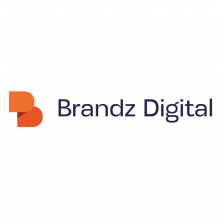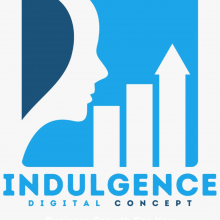Explore Top Data Analysis Companies in Nigeria
turning ideas into tech solutions
Maxuratech is a digital service solution provider that empower individuals' and businesses' with the boost they need to succeed
Services:
Every brand has a story worth telling, and we are the creative agency to tell it.
Outdoors and Billboards Nigeria is a full service media and advertising agency for launching new products and reinventing brands
KENNETH PRICE NIGERIA is a leading Digital Marketing, Branding and Brand Management agency in Abuja,
Services:
We offer the best in Digital Advertising, Traditional Advertising, Brands Activation Business Consultancy.
Doingsoon is an experiential and data-driven marketing agency that uses creativity and technology to connect people with brands Engaging Experiential...
Surfclick Innovations Limited is a technology solutions provider, dedicated to empowering businesses with cutting-edge digital solutions.
We provide branding and brand communications service, social media management, and market research analysis to startups and large corporations.
We are a result-driven marketing agency that excels in putting businesses in front of the right audience through strategically placed advertisements.
From developing your brand identity to implementing effective marketing campaigns, ensuring your brand remains relevant and distinctive.
Adesh Team is a Shopify Partner and specialized e-commerce agency dedicated to helping businesses thrive online.
ROCKET247 (I-TSOLUTION COMPANY ) offers development services for mobile, and web marketing services to companies and industries.
"Boost your online presence with Seal-World Technologies Ltd.'s expert SEO content and web development services. Your success is our priority."
Services:
ProjectBist is a platform that connects research-solution-seeking clients with profound researchers for collaboration and mentorship.
Services:
A leading market research firm known for integrity and excellence, Clients' satisfaction is our major target.
A consulting firm that provides solutions for all research, development, ICT, communications and project management services.
We believe in innovation, and the want to be a part of every innovation no matter how small.
Customer driven digital marketing agency.
Services:
- 1
- 2
Filter Data Analysis Companies in Nigeria by Cities
Find the right tech company near you or from a specific city. Some of the best companies might be located in smaller cities.
Find more Data Analysis companies around the world
TechBehemoths is the world's most advanced and user-friendly platform to match IT Companies with real clients without hustle.
The ICT Industry in Nigeria : 2025 Report
Nigeria’s ICT sector contributed 19.78% to the country’s GDP in 2024. The telecommunications segment accounts for the vast majority of this, at around $7.6 billion. Other important contributors are broadcasting, data center services, cloud, IT, and BPO.
Nigeria’s combination of relatively stable governance, strategic location, and young and innovative population has made it an attractive destination for multinational companies. Several notable firms, such as Oracle, IBM, Microsoft, Cisco, HP, and SAP, have offices in Nairobi, and some have based their entire African operations from these offices.
Why You Should Work With Nigerian IT Companies
Digital service providers in the cloud and BPO markets are primarily involved in the provision, rather than the development, of services, whereas Nigerian firms are more prevalent in the fintech and e-commerce markets. The physical technology required for the delivery of digital services is typically imported, and it is not clear that Nigeria could produce these products more efficiently.
A key strength in the digital services market is the acceptance of mobile services. Any consumer solution entering the market would have to be mobile-compatible. Mobile healthcare services are expected to grow particularly rapidly as the sophistication of these offerings increases.
In addition, the CEO of Toniceli considers that one of the competitive advantages Nigerian IT companies have compared to those established in neighboring countries is the challenging conditions. Here in Nigeria, we're used to working in challenging and stressful environments. This gives us grit, especially when faced with challenging projects. It's just a part of our nature to face challenges headlong and not to back down.
What to Pay Attention to When Working With Nigerian IT Companies and Web Agencies
On the consumer side, it is vital that any proposed digital service offering be mobile-compatible due to the prevalence of mobile usage in Nigeria. Furthermore, smartphone penetration in the region is steadily increasing, thus increasing the sophistication of viable digital service offerings.
Given the acceptance of fintech by the Nigerian population, a possible route to entry in the consumer market is to acquire one of the many smaller fintech firms in the industry. This would resolve some of the primary barriers to entry, most specifically bureaucratic red tape and a lack of local knowledge.
On the corporate side, the most effective route to entry is likely through partnerships with smaller local resellers. This model is already popular in the Nigerian market. A key differentiating feature here will be how well the service adapts to the Nigerian market.
How Reliable Are Nigerian-based IT Companies?
Considered to be one of the biggest African IT hubs, Nigerian web agencies and IT companies compete only with Ethiopian ones in terms of reliability. As many foreign companies have already invested and thus developed the local IT infrastructure and industry overall, Nigerian IT companies find it easier than other neighboring countries to enter the global market and provide their services at accessible prices.
How Does the Nigerian IT Industry Relate to the Neighboring Countries?
Nigeria is actively trying to establish itself as a key ICT hub in the East African region. The country appears to be making good progress in this regard, helped by having a strong connectivity infrastructure and a young, innovative population. Despite this, the country currently faces considerable political uncertainty, and issues surrounding the transparency of tenders remain a major barrier to growth.
Although Nigeria’s score in the Global Innovation Index 2024 is not high in absolute terms, it ranks 113th in the world. This supports the conjecture that businesses, government, and consumers will be receptive to new technologies, as ICT has already had a substantial impact on the Nigerian economy.
The Business Environment in Nigeria
The CEO of Toniceli - a leading Nigerian IT company, Oluwayomi Olabanjo, states that the Nigerian business environment is growing rapidly. Most business environments are still very much clustered in the city of Lagos, but over the years, there's been an expansion in economic clusters in other cities. There had been challenges in infrastructure, policies, power, and access to professional training and education. However, things have been getting better over time, especially with the coalition of private and public enterprises addressing these challenges headlong. I would say the biggest factor we've had working for us in the Nigerian market is the availability of youthful talent and the increasing flow of foreign and local capital into the market.
What Makes Nigeria Attractive for International IT Companies?
Oluwayomi Olabanjo mentions on this topic that what makes it attractive is the abundant supply of youthful talent. However, unstable government policies, infrastructure, and power shortages are challenges, making it unattractive for international IT companies.
Yet, the Nigerian Communications Commission had been doing quite a lot with the startup bill and also with the establishment of public-private incubator programs within the country. I really do believe they should be given credit for this.
Lagos, Ibadan - Best Cities for Doing IT business in Nigeria
Lagos, because it has always been the economic hub of the country, hence the IT industry has found it quite easier to experience growth in that space.
Ibadan due to the fact that it is a fast-growing economic hub and also, and there's less capital expense in setting up and running a company here. - mentioned Oluwayomi Olabanjo.
What is Data Analysis and what are its benefits for your projects?
Data analysis services help businesses make sense of their data. They collect, clean, and analyze data to uncover valuable insights, patterns, and trends that can inform decision-making and strategy.
More than 644 verified and trusted IT companies specialize in providing data analysis services. These companies offer a range of expertise, from data scientists to data engineers. Notable IT companies in this field include IBM, Deloitte, and Accenture.
Data analysis service providers use various tools and technologies to work with data effectively. Commonly used tools include statistical software like R and Python, data visualization tools like Tableau and Power BI, and big data platforms such as Hadoop and Spark. Cloud computing platforms like AWS and Azure are also popular for data storage and analysis.
Data analysis services are often part of a broader range of data-related services, including:
-
Data Visualization: Creating graphical representations of data for better understanding.
-
Business Intelligence: Developing dashboards and reporting systems for data-driven decision-making.
-
Predictive Analytics: Forecasting future trends and outcomes based on historical data.
-
Data Engineering: Building data pipelines and infrastructure for data storage and retrieval.
-
Machine Learning and AI: Leveraging advanced algorithms to automate data analysis and predictions.
Selecting the right IT company for data analysis services involves considering factors like the company's experience, domain expertise, client references, and the range of services they offer. Look for a company that aligns with your specific data analysis needs, whether it's for business intelligence, marketing, finance, or any other domain.
Data analysis service providers are essential for various projects, including:
-
Market Research: Analyzing customer behavior and market trends.
-
Financial Analysis: Assessing investment opportunities and managing risks.
-
Healthcare Analytics: Extracting insights from patient data for better healthcare outcomes.
-
Supply Chain Optimization: Improving logistics and inventory management.
-
Customer Insights: Understanding customer preferences and enhancing user experiences.
-
Fraud Detection: Identifying unusual patterns in financial transactions.
Most of the times, these services are valuable for companies across industries, including but not limited only to:
-
Retail: Analyzing sales data to optimize inventory and promotions.
-
Finance: Managing investments, risk assessment, and fraud detection.
-
Healthcare: Improving patient care, disease prediction, and drug discovery.
-
Marketing: Enhancing customer targeting and campaign effectiveness.
-
Manufacturing: Optimizing production processes and quality control.
-
Technology: Utilizing data for product development and user experience enhancement.
Data analysis services can provide valuable insights, but it's crucial to have clear objectives and questions you want to answer with the data. Communicate your goals clearly with the service provider to ensure that the analysis aligns with your needs. Data privacy and security should also be a top consideration when sharing sensitive data with a service provider.


















